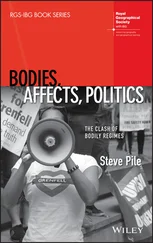Still awake at dawn, she asked herself who she had been, the grandmother who died giving birth? Zarifa knew almost nothing about the generations before her. She’d heard it said that her father’s mother had run away. That was all she knew. Questions about them had never particularly plagued her in the past and they didn’t much occupy her now, though now and then she did think she could see the little African village in which her great-grandfather had spent his nights in peace before it was written that he and his offspring after him would be thrown into entirely different lives?
As Senghor was being born in a small Kenyan village, the Sayyid, Said bin Sultan, was signing a second pact with Britain to ban the slave trade. In the 1885 accords, Sayyid Said had already agreed to put an end to the commerce in slaves that moved between his African and Asian dominions. He had consented to allowing British naval ships to stop and search Omani vessels, even in Omani territorial waters, and throughout the Arabian Gulf and the Indian Ocean. They were to seize and sequester any vessels violating the accords. But Senghor wasn’t even quite twenty when he was gone after by pirates from other, more powerful villages. Under cover of darkness they slipped into the dense forests around the village and set up their traps. When Senghor went out at dawn to gather some firewood he fell into a trap and it snapped shut, caging him in. They seized him immediately and took him back to their village along with the other captives, their harvest for the day.
The new slaves were assembled at Kalwa and loaded onto a ship headed for Zanzibar. It was a three-day trip but there was nothing to eat or drink. By the time they arrived at a clandestine collection point on the shore near the harbour, sixty slaves had died, their bodies pitched overboard. The waiting merchants — some were Arabs, some Africans — had paid the head tax, two dollars apiece. The ship emptied its cargo of slaves onto the shore to await the native Sur boats that would sail from the port of Zanzibar. As they waited the merchants seized their opportunity to strike bargains with certain English plantation owners, who returned to their farms with their own bounty: more than one hundred slaves.
A few days later the Sur boat left port, the captain having sold its cargo of dried fish. Evading the British naval ships, at the secret coastal collection point it took on board the remaining human cargo, those still alive who had not been bought by the Englishmen, Senghor among them. He began to suffer from hallucinations. The ship captain kept a heap of French flags in his cabin; he had acquired from the French authorities in Aden. He had them raised high above deck as a ploy to avoid inspection from any British ships he might encounter unexpectedly in the sea lanes. And so the boat arrived safely at Sur harbour at the end of August, carried by the seasonal gusts of wind coming from the southeast. Senghor had recovered from his hallucinatory spells and the seasickness by then, and had begun to learn Arabic.
The merchants in Sur got to work dividing up the slaves, their argumentative bargaining lasting through the night. Having once again taken full advantage of the clash of interests between Britain and France, the boat captain hid his flags away carefully in his cabin and went home happy. The next morning when the merchants had come to an agreement, the slaves were transported in groups to shacks of two or three floors. With some others Senghor went up to the higher rooms. The windows were merely long slits but they allowed air in from all directions. Though the ground floor was meant for storage, some of the more troublesome slaves were deposited there.
At night the heat was still unbearable. The slaves were permitted onto the roof to sleep in the open air. Even with the breeze off the sea the air was stifling. Senghor tried to counter it by pouring water repeatedly over his body. His eyes were red but he did not cry. He no longer thought about the past, or the future. All he wanted was to sleep on firm ground.
A few days later Senghor was placed with a small group who were sent to the east coast where farm workers were needed. He didn’t stay long, for he was sold to a shaykh in al-Awafi. There, Senghor worked in the house and on the farm too. He married one of the shaykh’s slave women. When he died at forty of tuberculosis he had had two daughters who died of it too, and a son who married and had sons and a daughter before joining up with a gang of highwaymen and disappearing. His daughter Ankabuta grew up, after her brothers had all been sold away, as an orphan in the home of Shaykh Said. He had just inherited his shaykhly position from his father, although he had barely reached the sixteenth year of what would be a very long life.
When his bride Asma recited the words she’d memorised as a child, about restless souls in search of their departed halves, Khalid had simply remarked, You found that in an old Arabic book? The Dove’s Necklace , likely.
The Dove’s Necklace ? Asma repeated. Who wrote a book with such a lovely title?
He gave her a rather lofty smile. An Andalusian legal scholar named Ibn Hazm. I think this is from that book.
Asma leaned towards him eagerly. But do you think it’s true, Khalid? That people’s souls really were united when the world began, and then were split in half?
He laughed. Asma, it’s only an ancient legend. That people were all the same, all one sex, male and female both, all children of the moon. Every being had four hands, four feet and two heads, that’s what they said. And then, the gods were afraid that creatures with all of this would be too strong, so they split them in two. Only the belly button remained as a reminder of that original wholeness. People became either one sex or the other. Each half has to search for its other half.
She whispered, Am I your other half, the half that was split off?
He hugged her tightly. The half I have finally found.
He had told her how, just seeing her once, he had fallen in love with her. It wasn’t very long, though, before Asma began to realise that people are not simply unmade halves who find their other halves and miraculously become whole. Neither bodies nor spirits are empty globes split down the middle; no pair exists whose souls adhere perfectly like the two identical halves of a perfectly round sphere. Even more disturbing, she began to realise that there was no way she could be Khalid’s other half, once upon a time sundered but which (he assured her) he had now found.
This was because Khalid, on his own, took on the likeness of a celestial sphere complete unto itself, orbiting only along its already defined path. Khalid knew exactly what he wanted and now he was getting everything he needed: a fond family, his diploma, and his art which — he made clear to Asma — was at once his inner world and his public work. What had attracted him to Asma — as she gazed wide-eyed at his canvases — was that she fit his needs perfectly. He had already decided on marriage to a woman who would somehow stand out from all the others, with some quality of note. He chose accordingly, looking for a woman who would fall instantly into the orbit he had marked out, who would always be there but would also always stay just outside, yet without wanting to create her own celestial sphere, her own orbit. So he encouraged Asma to continue her education, though at night school because the law now prohibited married women from attending the regular government day schools. He urged her to go on developing her sincere love of reading and when she achieved distinction in her teacher’s certificate he encouraged her to get a job. After all, her mature skills and accomplishments would advance his social status, not to mention that they confirmed his confidence in the choices he himself had made. She was a wife one could be proud of, and his acquisition of her put the final touch on his social acceptability. Yes, he had done it: a respectably able wife, circling within his gravitational pull, quietly, invisibly, inside its orbital path, never straying beyond.
Читать дальше












